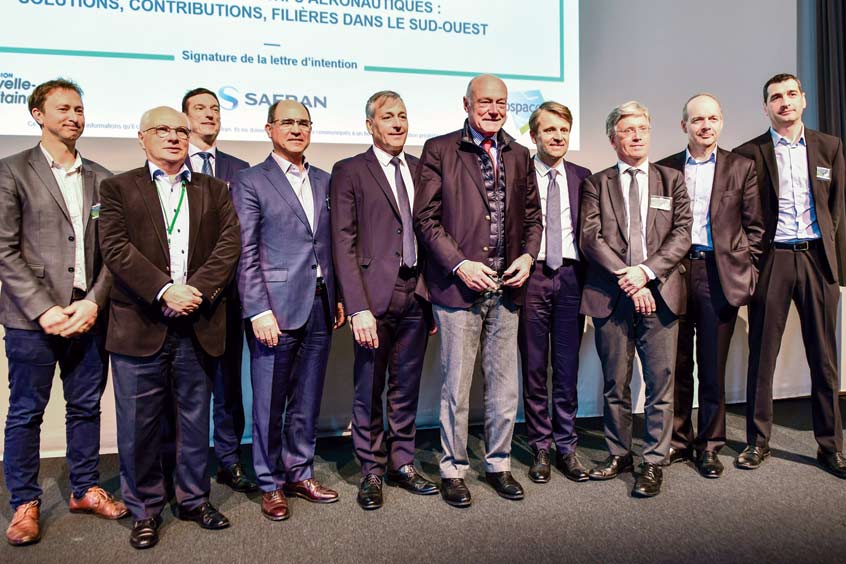ACE 2026 - The home of global charter.
 The bimonthly news publication for aviation professionals.
The bimonthly news publication for aviation professionals.

Safran Helicopter Engines is joining Euralis, Teréga, ACD (Aquitaine Chimie Durable), Chemparc, Agri Sud Ouest Innovation, Xylofutur, CCI Pau Béarn, Pau and Pays de l'Adour University and the Aerospace Valley consortium to study the feasibility of producing aviation biofuels in southwest France. A letter of intent (LOI) has been signed in the presence of Alain Rousset, president of the Regional Council of Nouvelle-Aquitaine.
Signatories to the LOI will evaluate local capabilities and skills in the fields of agriculture, chemicals and energy to produce and distribute sustainable aviation biofuels. Airports, air bases, and industry will benefit from the proximity of a sustainable, certified and ‘drop in’ (that is to say no engine modification required) fuel source for local use.
Alain Rousset comments: “To complete the necessary transition to carbon neutrality by 2020, the aerospace industry has to act in many areas. In the short and medium term, introducing biofuels is one of these. The Nouvelle-Aquitaine region possesses excellent resources in agriculture, chemicals and energy, which can be used to develop this production. We are committed to supporting this initiative for a more sustainable aviation industry.”
Safran Helicopter Engines CEO Franck Saudo adds: “Safran is committed to an industry that treats the environment with greater respect. Success in this ecological transition will evolve from expertise in several technologies. Safran Helicopter Engines is exploring several of these including hybrid-electric power, optimised turboshaft designs and alternative fuels. Our ambition to create this local biofuel source will satisfy the latter objective. And our engine test facilities will help us develop even more advanced alternative fuels.”
Compared to conventional kerosene, biofuels emit much less carbon throughout their life-cycle, from production to consumption. They can contribute a great deal to improving aviation's environmental credentials.
The Safran group is already a key player in this strategy as it is involved in almost all areas of aircraft production. Its technological roadmap is focused on reducing the environment footprint of ifs future products, and engines will be compatible will alternative fuels by 2030-2035.